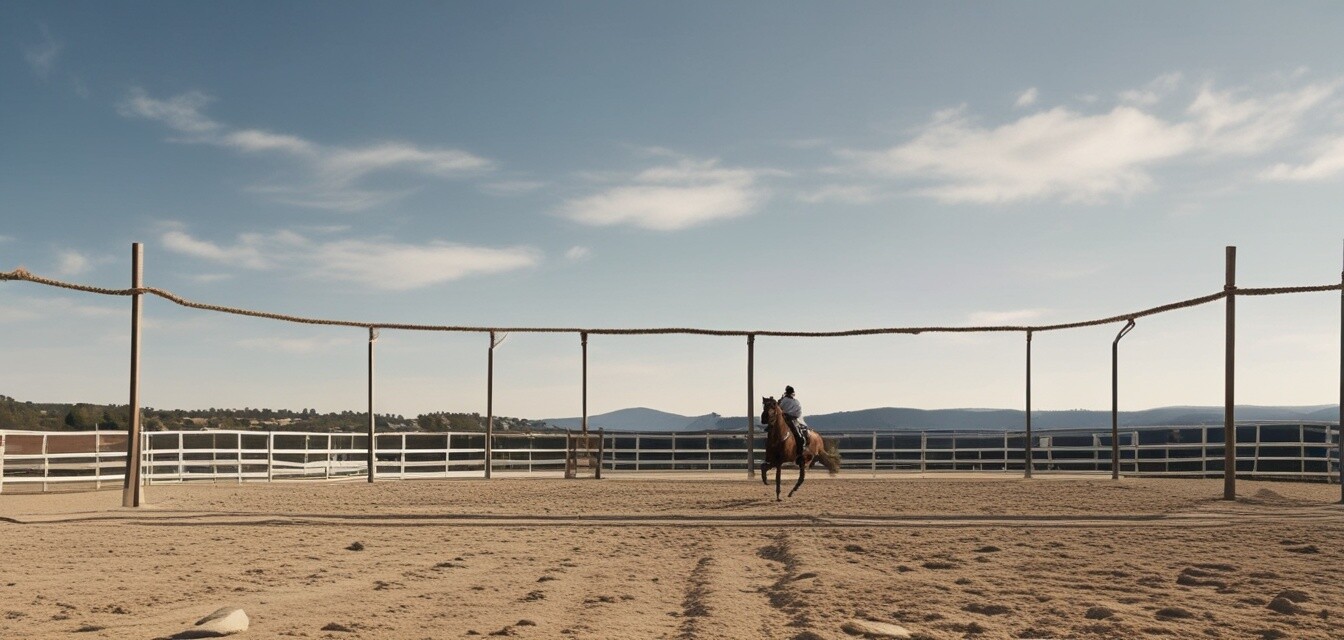
The Benefits of Groundwork for Riders and Horses
Key Takeaways
- Groundwork enhances communication between horse and rider.
- Establishes a bond of trust that improves performance.
- Improves the horse's responsiveness and obedience.
- Promotes physical fitness and mental wellness for both horses and riders.
- Can be a valuable tool for training and behavior modification.
Groundwork is often overlooked in horse training disciplines, yet it plays a crucial role in the development of both horses and riders. This practice not only improves performance under saddle but also fosters a deeper understanding and connection between the rider and horse. In this article, we'll explore the numerous benefits of incorporating groundwork into your training routine.
What is groundwork?
Groundwork encompasses various exercises performed with the horse while it is on the ground. This can include leading, lunging, desensitizing, and other activities that help develop the horse’s understanding of commands and cues without the added weight of a rider. Groundwork can be beneficial for horses of all ages and levels of experience.
Enhancing communication
Effective communication is key in any horse-rider relationship. Groundwork provides an excellent opportunity to establish clear signals and cues, making it easier for the horse to understand what is being asked of it.
| Groundwork Exercise | Communication Focus |
|---|---|
| Leading | Establishing personal space and direction |
| Lunging | Understanding pace and rhythm |
| Desensitization | Building trust with various stimuli |
| Backing up | Reinforcing respect and boundaries |
Building trust
Groundwork serves as a foundation for trust. When a horse feels secure and understands what is being asked of it, the bond between horse and rider strengthens. This trust translates to better performance under saddle as the horse is more willing to cooperate.
Improving performance
Both horses and riders can experience performance enhancements through regular groundwork training. Horses that are confident on the ground often exhibit greater composure when ridden, leading to fewer issues related to anxiety or nervousness.
Pros
- Greater obedience and responsiveness
- Improved physical fitness for the horse
- Lower risk of injury through improved flexibility and strength
- Enhanced rider confidence
- Valuable exercise for both horse and rider
Cons
- Requires time and patience to see results
- Can be physically demanding
- Not all horses respond the same way
Physical and mental benefits
Groundwork has tangible benefits for both the horse's physical fitness and mental wellness. Regularly engaging in groundwork exercises helps to:
- Improve muscular development and balance
- Promote overall health and prevent behavioral issues
- Enhance coordination and body awareness in the horse
Utilizing groundwork in training
Incorporating groundwork into your training plan allows you to set a solid foundation before working under saddle. It also provides an opportunity for both horse and rider to practice skills in a low-pressure environment. Here are some tips for effectively utilizing groundwork in your training:
Tips for beginners
- Start with basic commands and gradually progress to more complex tasks.
- Be patient and consistent; changes won't happen overnight.
- Always reward your horse for positive responses to build confidence.
- Observe body language closely; it offers insight into your horse’s feelings.
- Make sessions short and engaging to maintain focus and enthusiasm.
Conclusion
In conclusion, groundwork serves as an invaluable part of training for both riders and horses. The enhanced communication, trust, and overall performance gained through proper groundwork can positively shape the rider and horse relationship. Start incorporating groundwork into your training routine and watch as both you and your horse grow in strength and understanding.
For further insights into various aspects of horse riding and care, check out our other valuable resources, such as our Buying Guides and Equestrian Gear.
